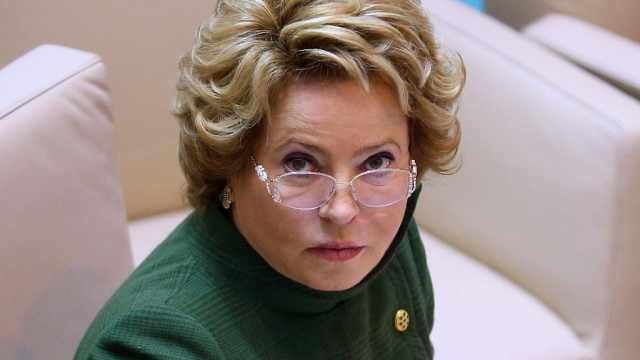
Castro will view massive parade in Moscow and meet with Putin in May
President Raúl Castro of Cuba will attend the Victory Day Parade in Moscow on May 9 and will meet with Russian President Vladimir Putin, the chairwoman of the Russian Federation Council revealed on Monday (April 20) in Moscow during a visit by a Cuban official.
“Russia has great respect for your leader, Raúl Castro, who confirmed that he will come for the celebration of the 70th anniversary of Victory Day in Moscow,” said Valentina Matviyenko to Ricardo Cabrisas Ruiz, vice president of the Council of Ministers.

“I am sure that a new meeting of our heads of state will help promote bilateral cooperation in all areas,” she added. Castro and Putin last met in Havana last July. Castro has traveled to Moscow twice before, in 2009 and 2012.
The Federation Council is the upper house of Russia’s Parliament, the equivalent of the U.S. Senate. Matviyenko is the third most powerful government official, after the president and the vice president.

Castro’s trip to Russia this year was predicted in February by Russian Deputy Foreign Minister Vassily Nebenzya during a trip to Havana. He said that an invitation had been extended but couldn’t confirm Castro’s acceptance or the date of an eventual trip.
The 2015 Victory Day Parade will be staged on Red Square to commemorate the 70th anniversary of the surrender of Nazi Germany in 1945 and the end of World War II in Europe, known in Russia as The Great Patriotic War.
About 16,000 soldiers, 200 armored vehicles and 150 planes and helicopters will take part in the parade. Rehearsals are already taking place.
Russia’s participation in the war will be celebrated simultaneously in Havana, Matviyenko said, without giving details.
This year, because of the tensions between Russia and the West over the situation in Crimea and Ukraine, the presidents of the United States and many European countries have declined to attend. In most cases, they will send their ambassadors or other diplomatic representatives.
However, countries in the communist/socialist sphere will send their top leaders, such as China’s Xi Jinping, Vietnam’s Truong Tán Sang and North Korea’s Kim Jong-un.
Cuba has supported Russia with regard to Crimea/Ukraine and has denounced the sanctions that the West has imposed on Russia as a result, likening them to the economic blockade that the U.S. imposed on Cuba.
The topic of Monday’s talks between Matviyenko and Cabrisas was increased and improved relations between Russia and Cuba, with Matviyenko inviting Cuban National Assembly leaders to visit Russia.

“You can note the intensification of contacts not only in the legislative field but also at the level of ministries and agencies,” she said. “The expansion of our dialogue can only be good.”
She drew attention to the significant potential of expanding trade and economic relations.
In addition, “it is necessary to develop humanitarian ties” to Cuba, Matviyenko said. For example, Moscow has created an “exclusive solution” that will allow promising Cuban college students to study in Russia on partly paid scholarships that include travel, health insurance, room and board.
“We would really like to see fully paid scholarships for the Cuban students,” she said.
Matviyenko thanked Cabrisas for Cuba’s principled position on the Crimea/Ukraine situation, saying that in proves that Cuba has an independent foreign policy.
“It is nice to get solidarity from a country that withstood an economic blockade for more than 50 years,” she said. Speaking of the relaxation in travel regulations between the U.S. and Cuba, and of the expected removal of Cuba from Washington’s list of terrorist countries, she said they constituted “a big victory for Cuba, which did not bow its head, showed independence and made changes as a result of the situation.”
However, she cautioned, the current rhetoric of the United States toward Cuba and other countries in the region “does not mean that America will abandon its earlier plans.”


